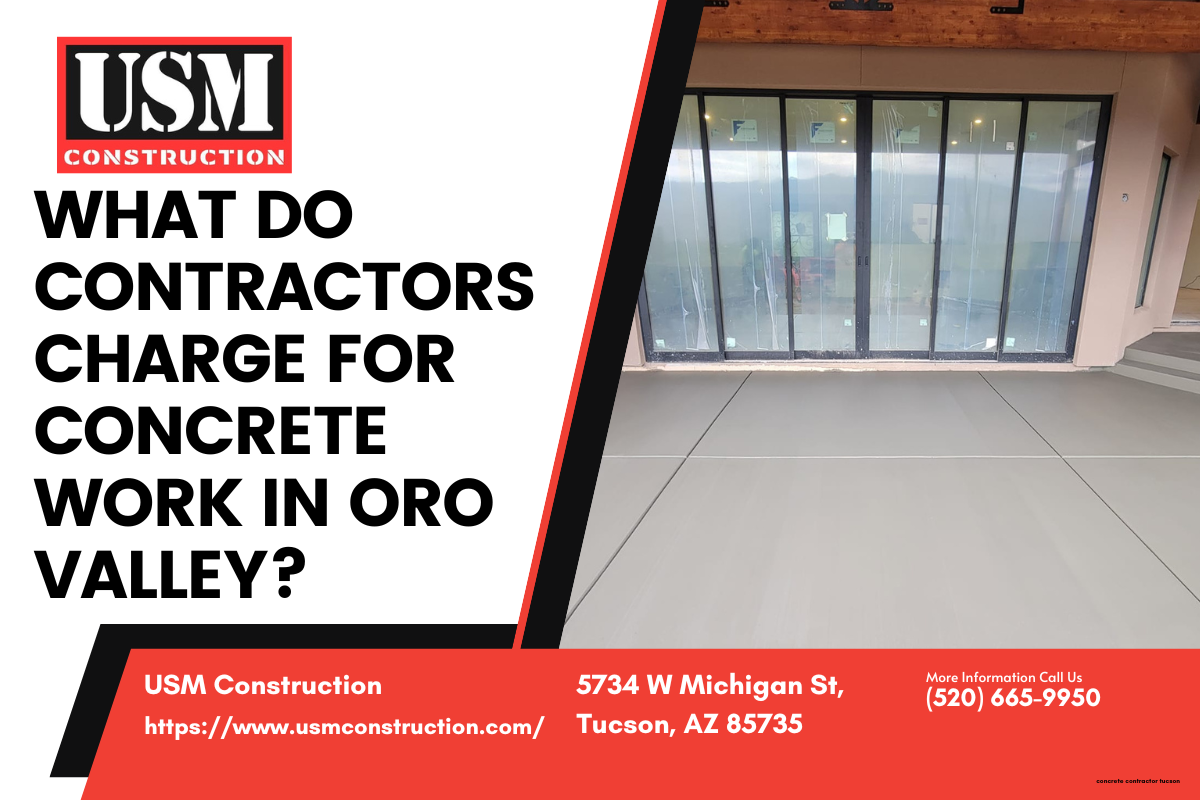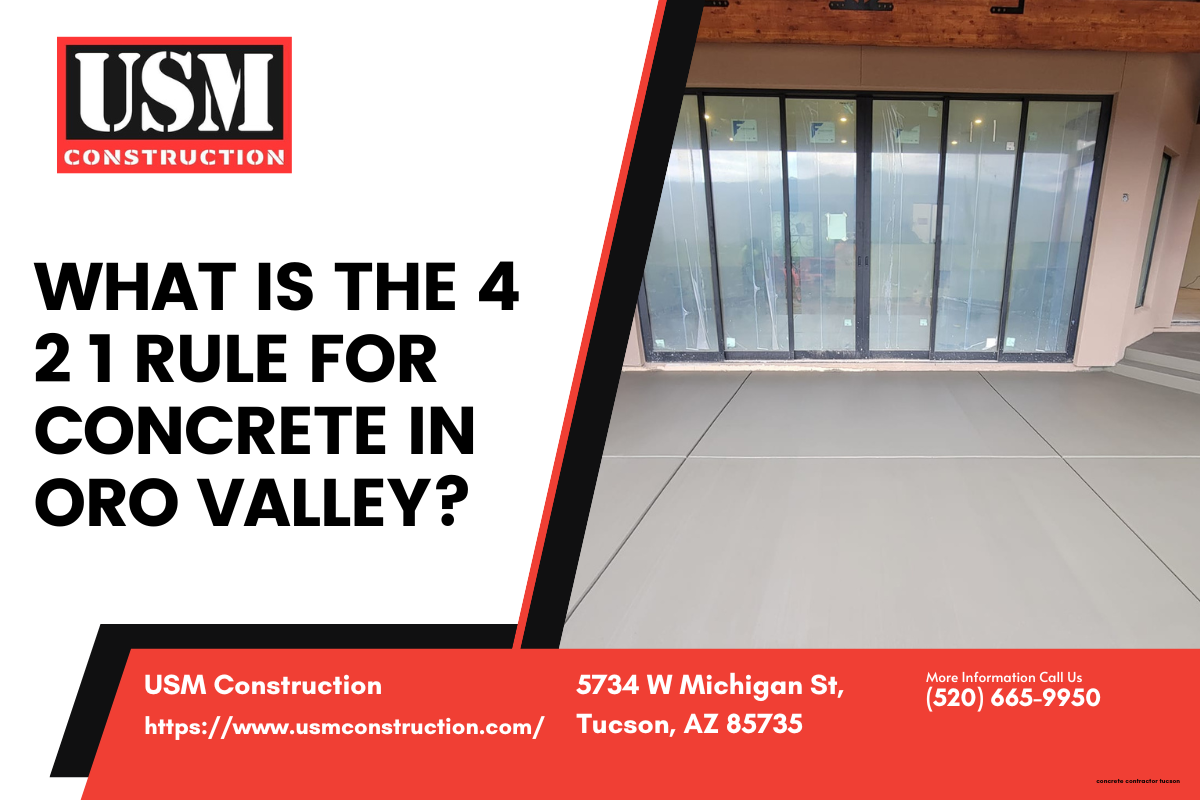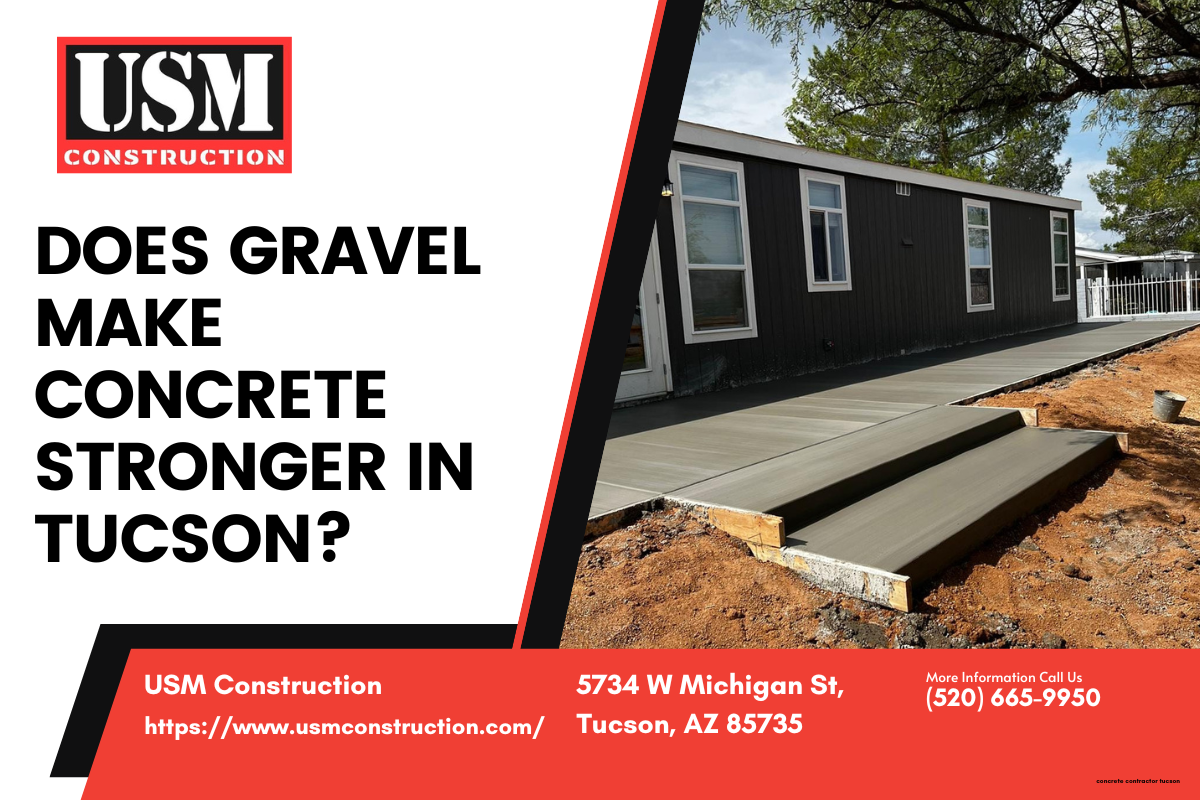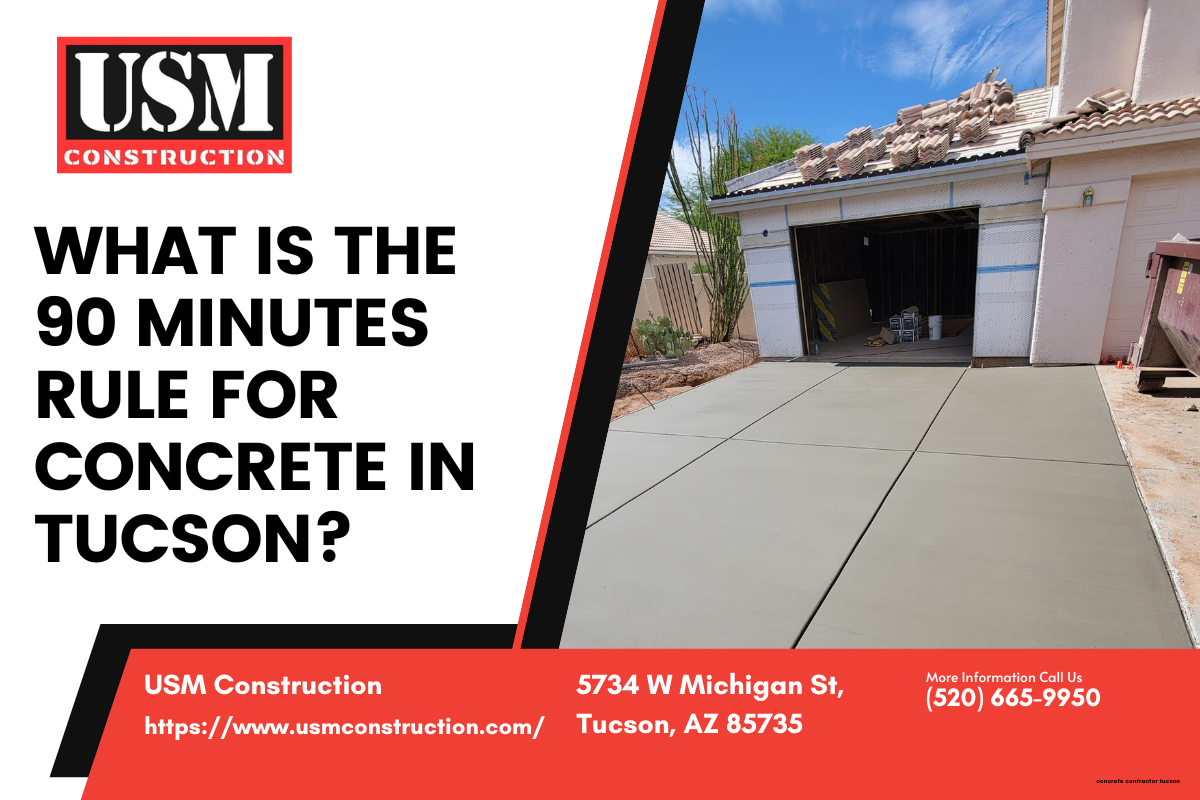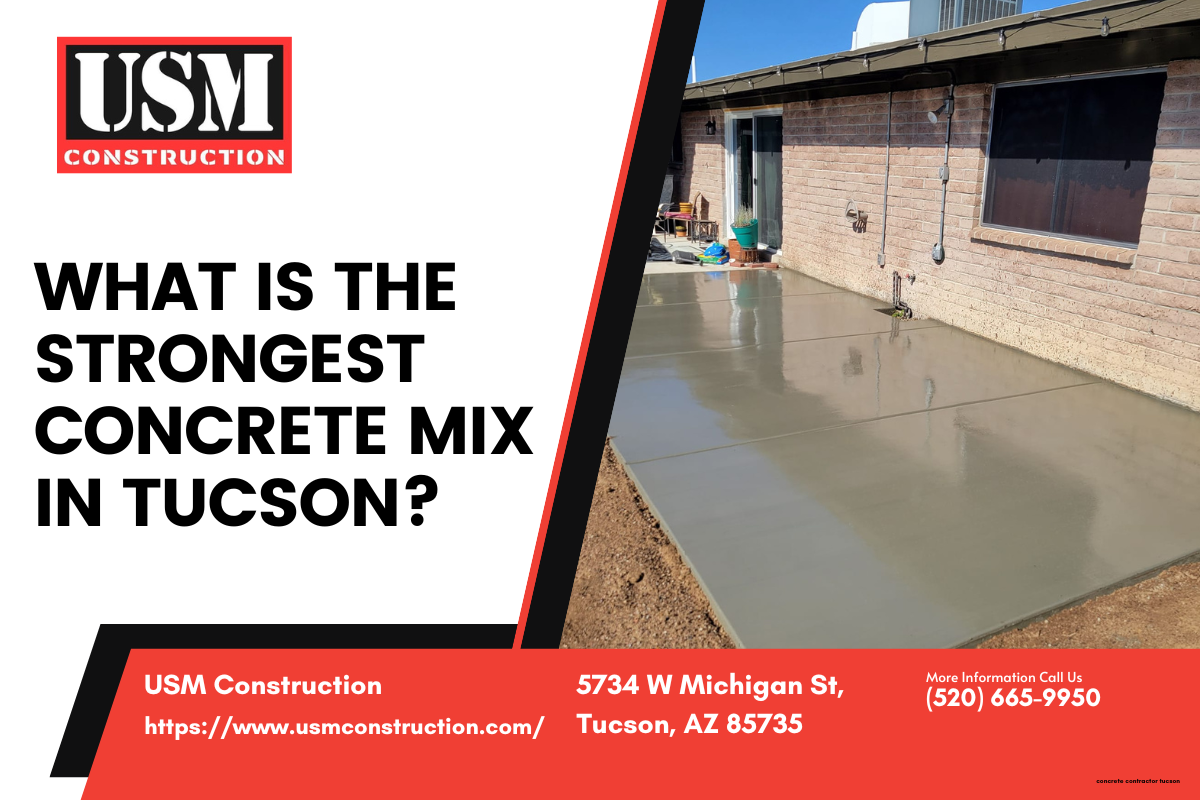TABLE OF CONTENTS
A 20x20 concrete slab in Oro Valley typically costs between $2,000 and $4,800, with a national average price range of $5 to $12 per square foot. This 400-square-foot surface is a popular choice for patios, shed foundations, and garage floors. The final price of your project in Oro Valley is an investment in your property's future, heavily influenced by critical factors such as the slab's thickness, the type of reinforcement used, site preparation needs, and professional labor costs, all of which ensure its long-term durability and value.
Understanding the Total Investment: Average Cost for a 20x20 Slab
When planning for a new patio, a base for a garage, or a sturdy floor for a workshop, a 20x20 concrete slab is an excellent and versatile choice. This size provides a generous 400 square feet of usable space, suitable for a wide array of residential and commercial applications. However, budgeting for such a project requires understanding that the final invoice is more than just the price of concrete. It reflects a comprehensive process that guarantees a stable, long-lasting surface. As a starting point, the average cost of a 20x20 concrete slab is between $2,000 and $4,800, or between $5 and $12 per square foot. This broad range accounts for the many variables that can arise from one project to the next, from local material prices to the complexity of the installation.
The Core Cost Factors: What Determines Your Final Price?
No two concrete projects are exactly alike. The unique conditions of your property and the intended use for your slab will directly shape the overall cost. A simple walkway has different structural requirements than a foundation intended to support a two-car garage. A trusted contractor will assess these needs to provide an accurate estimate. To better understand your potential investment, it's essential to break down the key components that contribute to the final price tag.
- Slab Thickness: The depth of the concrete pour is directly related to the weight it needs to support.
- Reinforcement Type: Steel reinforcement like rebar or wire mesh is critical for strength and crack prevention.
- Labor and Professional Installation: The expertise required for site prep, forming, pouring, and finishing is a significant part of the cost.
- Site Preparation: The existing condition of the land, including its slope and soil type, can impact the labor involved.
- Concrete Material & Delivery: The price per cubic yard of concrete and any associated delivery fees are primary material costs.
- Finishes and Enhancements: Decorative options such as stamping or coloring can add to the aesthetic appeal and the budget.
Factor 1: Slab Thickness and Its Purpose
One of the most frequent questions homeowners ask is, "How thick should a 20x20 concrete slab be?" The answer depends entirely on its intended function, and this decision is a primary driver of your material costs. A thicker slab requires more concrete and often more robust reinforcement, increasing the price. For most applications, slabs are poured at a thickness of either four or six inches. A knowledgeable contractor will guide you to the correct thickness to ensure your slab performs as expected for decades to come without cracking or settling under its load.
- 4-Inch Slab: This is the standard thickness for projects that will only support foot traffic and light loads. It is perfectly suitable for patios, walkways, and foundations for small sheds used for storing lawn equipment.
- 6-Inch Slab: This thicker, more durable option is necessary for surfaces that must bear significant weight. A 6-inch slab is the standard for driveways, garage floors, workshops, and foundations for buildings or heavy equipment.
The cost difference between these two options is substantial. A 4-inch reinforced concrete slab costs $6 to $10 per square foot on average, while a 6-inch slab costs $8 to $14 per square foot. For a 400-square-foot project, this difference is significant, highlighting the importance of choosing the correct thickness for your needs.
Factor 2: The Importance of Reinforcement
Concrete is incredibly strong under compression but vulnerable to tension forces, which can lead to cracking over time due to ground movement or heavy loads. To counteract this, steel reinforcement is embedded within the slab. This is a non-negotiable step for quality construction that ensures the longevity and structural integrity of the slab. The two most common types of reinforcement are wire mesh and rebar. Wire mesh is excellent for preventing smaller, surface-level cracks, while rebar provides the heavy-duty structural support needed for foundations and driveways. The inclusion of these materials is a critical investment in your slab's durability. Industry data shows that reinforcement materials such as wire mesh or rebar can add $1 to $3 per square foot to the total cost. For a 20x20 slab, this translates to an additional $400 to $1,200 dedicated to ensuring its strength.
Breaking Down the Budget: Materials vs. Labor
The total cost of a concrete slab project can be broadly divided into two categories: materials and labor. While material costs are relatively straightforward, labor encompasses the skill, experience, and physical work required to transform raw materials into a finished product. Understanding how these two components contribute to your budget provides a clearer picture of where your investment is going.
Material Costs: Concrete and Delivery
The primary material, ready-mix concrete, is sold and delivered by the cubic yard. The volume of concrete needed is determined by the slab's dimensions—length, width, and thickness. According to calculations from HomeGuide, a 4-inch-thick 20x20 slab requires 5.0 cubic yards of concrete, while a 6-inch-thick slab requires 7.4 cubic yards. The price of the concrete itself is just one part of the equation. Delivery is also a key factor. Data shows that concrete delivery costs $119 to $149 per cubic yard, and a short load fee of $40 to $110 per yard often applies for loads under 10 cubic yards. Because a 20x20 slab typically falls into this "short load" category, it's important to account for this additional fee when estimating material costs.
Labor Costs: The Value of Professional Installation
While it may be tempting to view labor as just an expense, it is truly an investment in quality craftsmanship. Professional concrete contractors bring the expertise necessary to execute the project flawlessly, avoiding costly mistakes that can compromise the slab's integrity. As Forbes Home reports, labor costs to pour a concrete slab are $2.50 to $8.00 per square foot and typically make up about 40% of the total project price. For a 400-square-foot slab, this means the labor portion of your bill could range from $1,000 to $3,200. This fee covers a comprehensive range of critical services that ensure a successful outcome.
- Site Evaluation and Planning: Assessing the project area for potential issues like drainage or soil instability.
- Excavation and Grading: Clearing the area and ensuring a level, properly sloped surface for water runoff.
- Formwork Construction: Building the wooden or metal forms that will hold the wet concrete in place.
- Gravel Base Installation: Laying and compacting a gravel sub-base to provide a stable foundation and promote drainage.
- Placing Reinforcement: Correctly positioning and securing wire mesh or rebar within the forms.
- Pouring and Finishing: Managing the concrete pour and skillfully troweling the surface to the desired smoothness or texture.
- Curing: Overseeing the crucial curing process to ensure the concrete reaches its maximum strength.
Common 20x20 Concrete Slab Projects and Their Costs
The versatility of a 20x20 slab means it can be adapted for several common residential projects. While they share the same dimensions, their specific requirements and associated costs can differ based on their function and aesthetic goals.
How much does a 20x20 patio cost?
A 20x20 patio creates a wonderful outdoor living space for dining, entertaining, or relaxing. For this application, a 4-inch slab is typically sufficient. The base cost will fall within the $2,400 to $4,000 range. However, patios are where homeowners often choose to invest in decorative finishes. A simple broom finish is standard and included in the base price, but more complex finishes can increase the cost. Options like stamped concrete (which can mimic stone or brick) or adding integral color can add anywhere from $4 to over $15 per square foot to the project, elevating both the look and the final price.
How much does a 20x20 foundation cost?
When asking about a 20x20 foundation, it's important to distinguish between a simple slab-on-grade (for a shed) and a structural foundation for a garage or home addition. A true load-bearing foundation requires more than a simple flat pour. It must include thickened edges, known as footers, that extend below the frost line to provide stability and prevent heaving. This requires significantly more excavation, more complex formwork, and a greater volume of concrete. Because of this added complexity and engineering, a 20x20 foundation will cost more than a patio of the same size, often pushing the price to the higher end of the $8 to $14 per square foot range or beyond.
Exploring Alternatives: Poured Concrete vs. Paver Slabs
Some property owners wonder, "Is it cheaper to concrete or slab?" This question often compares a continuously poured concrete surface with one made from individual pre-cast concrete pavers, sometimes called "slabs." While both create a durable surface, they differ in aesthetics, maintenance, and cost. Poured concrete is generally the more budget-friendly option for the initial installation. Pavers, on the other hand, typically have higher material and labor costs. The intricate work of laying each paver individually on a prepared base is more time-consuming than pouring and finishing a single slab. While poured concrete is cheaper upfront, pavers offer the advantage of easier repairs—a single stained or cracked paver can be replaced, whereas a damaged concrete slab often requires more extensive patching or resurfacing.
Beyond the Basics: Additional Costs to Consider
A comprehensive budget accounts for every potential expense. While the core costs cover materials and labor for a standard installation, certain site-specific factors and owner preferences can add to the final project total.
- Extensive Site Preparation: If your property is heavily sloped, has large rocks or tree roots to remove, or consists of poor-quality soil, the cost of excavation and grading will increase.
- Permits: Many municipalities require building permits for concrete work, especially for larger slabs or structural foundations. These permit fees are an additional administrative cost.
- Drainage Solutions: In areas with poor drainage, installing a French drain or other system around the slab may be necessary to prevent water from undermining it over time.
- Concrete Sealing: Applying a high-quality sealer after the concrete has cured is highly recommended. It protects against moisture, oil, and stains, extending the life and look of your slab for a modest additional cost.
The USM Construction LLC Commitment to Quality
As we've detailed, the cost of a 20x20 concrete slab is an investment in the foundation of your property's utility and appeal. The final price is a reflection of quality materials, expert labor, and a commitment to durability that will serve you for years. Choosing an experienced contractor is the single most important decision you can make to ensure every factor, from the right thickness and reinforcement to proper site preparation and finishing, is handled with professional precision. This expertise is what transforms a simple mixture of cement, sand, and aggregate into a lasting and valuable asset.
At USM Construction LLC, we bring years of expertise and a commitment to unparalleled craftsmanship to every project. We understand that a concrete slab is more than just a surface; it's the foundation for your home's functionality and enjoyment. If you are in the Oro Valley, AZ, area and are looking for a reliable, professional partner to handle your concrete slab installation with precision and care, contact us today for a comprehensive consultation and quote.


